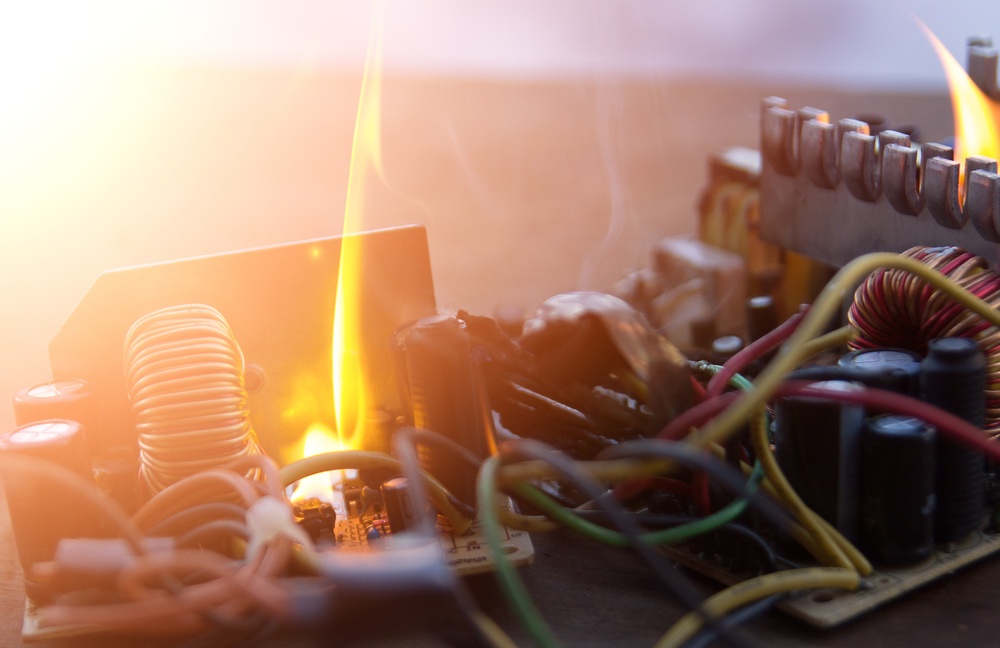Electrical hazards indoors are some of the leading causes of death worldwide. The common culprits of these hazards include defective wiring, electrocution, or overloaded circuits. These incidents can cause severe damage to electronics in your home and threaten your family’s safety.
When addressing these issues, you must know how to use and maintain electrical devices properly. Doing so can help you avoid injuries from incidents while saving money on energy bills.
Here’s a six-item list for keeping your home safe from electrical hazards:
- Installing Ground Fault Circuit Interrupters
A ground fault occurs when electricity travels from the hot wire to the ground through an unintended path. This incident may occur because of corrosion on a metal pipe or other object that touches both cables. With ground fault circuit interrupter (GFCI) outlets, you can detect the difference between a standard current and an abnormal flow. When this tool senses a fault, it interrupts the flow of electricity to protect you from electrical shock.
You may install GDCIs when wiring new circuits or adding outlets in bathrooms and kitchens, where water and electricity mix. Aside from that, you can also attach them to outdoor outlets near pools, spas, and sinks. If you don’t feel comfortable doing it yourself, call an electrician from Southside Electrics who knows how to use equipment to ensure everything follows code and safety standards.
- Inspecting Electrical Panels
Electrical panels are the heart of any home’s electrical system. They contain circuit breakers that protect your home from dangerous electrical shorts, overloads, and power surges. Thus, inspecting electrical panels is vital in keeping your house safe and comfortable.
For instance, you may check the panel doors for signs of wear so you can replace them immediately once you notice they have cracks. This damage indicates that someone tried to pry them open, which can be dangerous if you cannot shut off the electricity during emergencies.
- Checking Cords For Damage Before Use
When you plug in a device that has a cord, you’re using electricity that goes through those wires and plugs into your devices. This reality means that a problem with either part of the cord or plug could cause a fire or shock hazard in your home. As these cords develop cracks and abrasions over time from daily use, they can cause electrical short and shock risks indoors.
To avoid these situations, you must check cords before use to ensure they are in good condition. Check for cuts or frays in the insulation covering the wires, loose connections at plugs and sockets, cracked or broken plugs and sockets, or signs of corrosion on plug blades. In doing so, you can avoid trips to the emergency room and help you avoid costly replacements in the long run.

- Not Overloading Outlets With Plugs
A power strip or extension cord straining under the weight of multiple devices can affect the performance of each device plugged into it. As a result, this electrical socket may slow down charging times and decrease the charge capacity and overall lifespan of your appliances.
Thus, if you’re using more than one appliance at a time, ensure each one has its dedicated power outlet to prevent sparks. Similarly, you may consider investing in a heavy-duty extension cord instead of plugging multiple devices into a single outlet. This way, you can prevent electrical fire hazards while saving space, removing clutter, and ensuring all your devices have enough power to run correctly.
- Not Leaving Appliances Plugged In
It’s not suitable for your electronics or house wiring if they’re left plugged in all the time. If you do so, you might cause electrical issues with your home’s wiring system the longer you plug in devices. Over time, these plugs can wear out, leading to fire hazards and unnecessarily costing money.
So, instead of leaving your appliances plugged in, you must unplug them from the outlet to ensure that nobody will accidentally turn on the device when no one’s around. Another thing you must do is to turn off lights or fans when not in use to save electricity. In addition, you may also invest in advanced household tools with time-controlling features that automatically turn off after charging. Lastly, always check your sockets before going to bed or leaving home, especially if you have young children or pets that might start playing with high-voltage devices.
- Replacing Worn Cords
Worn cords can be dangerous because they can fray and break, causing a fire or electrocution. They may also wear out and become loose in the socket, which can cause overheating and damage to the cord and your appliance.
Fortunately, you can replace them immediately once you notice damage to improve home safety while boosting energy efficiency. To do so, you must choose one compatible with your outlets to avoid the risk of blowing any fuse or causing a fire due to improper connection between two devices.
Publisher Website: https://www.southsideelectrics.com.au/